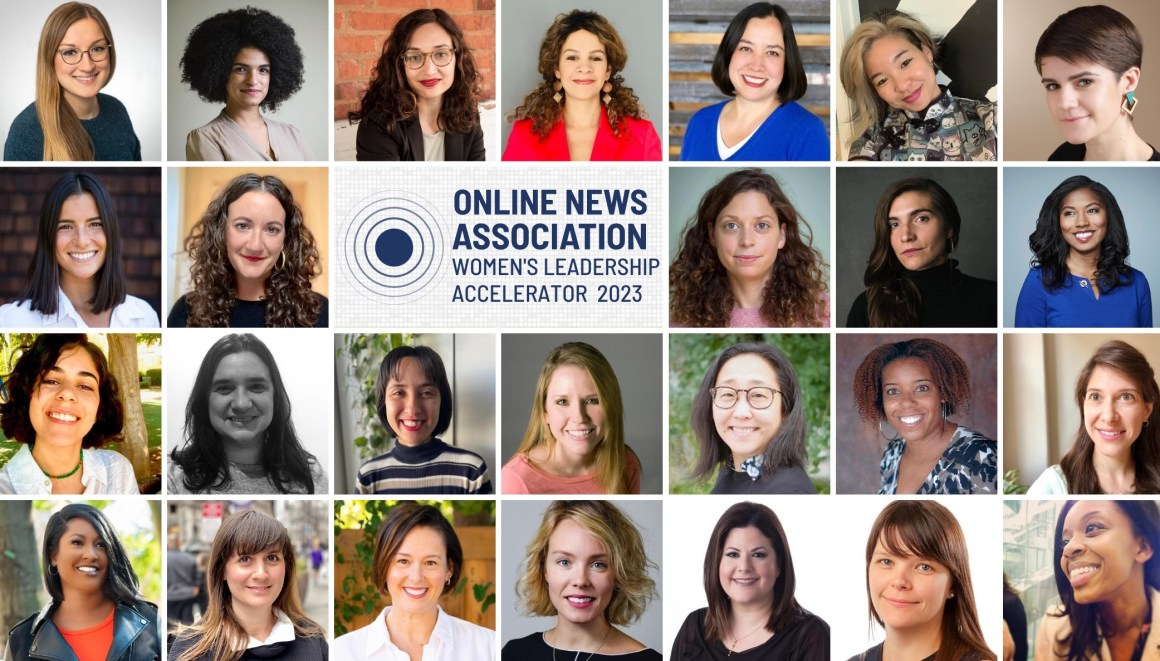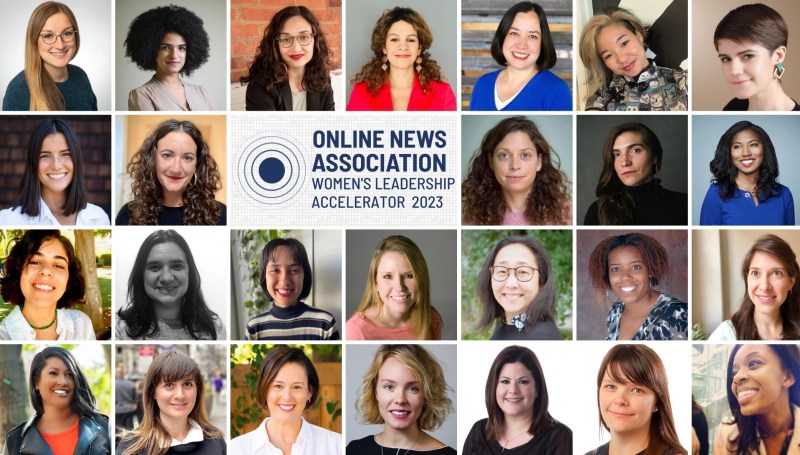
When Dariela Sosa founded 10min and Arepita, two digital news platforms to counter news avoidance and censorship, she started looking for a way to supercharge her leadership skills in journalism. A friend recommended she apply for the Women’s Leadership Accelerator Program with the Online News Association.
Since joining the accelerator program, Sosa, a Venezuelan journalist with more than a decade of experience, was able to speak with mentors who helped her hone her financial pitch for her initiatives, ultimately landing her a grant with Tiktok Latin America. She also said that her cohort members encouraged her to enter Arepita for the Best Single Newsletter Category in the Online Journalism Awards, which she ended up winning.
“I think it’s important to support everyone’s leadership, but especially women,” Sosa said. “We face extra pressures sometimes. … We do not have many spaces to discuss that. I found that the Women’s Leadership Accelerator was a great and safe space, to discuss how we were feeling and to support ourselves in our different challenges.”
This year, the accelerator welcomed its eighth cohort of 26 female innovators in leadership and management who are working to create change within their organizations and the journalism industry at large. The program offers one-on-one coaching, workshops and networking.
The 2023 cohort represents five places outside of the contiguous United States and 10 states or territories within the contiguous U.S. They serve audiences from San Diego, California, to Buenos Aires, Argentina, and the majority of the group identifies as women of color.
Kelsey Proud, who has been leading the Women’s Leadership Accelerator for two and a half years, sees a clear need for more support for women in positions of power for more representation of the communities that they serve.
She noted that it helps to shift the balance of power and makes organizations more equitable — especially when it comes to making financial and hiring decisions. This, Proud said, is important in a landscape where women and nonbinary leaders often are second guessed and not taken seriously as their straight white male counterparts.
Within the program, Proud said, the cohort doesn’t just learn from guest speakers and alums — they also learn from each other and form lifelong connections.
She also mentioned that cohort members are chosen based on complementary strengths and weaknesses, and that alumnae in the program have stayed in touch with each other whether for a hire, career advice, vacationing or as part of their chosen family.
“People that may feel like they are leading alone in some cases, or just looking for community with other people that are in very similar kinds of positions as themselves,” Proud said. “It’s not only professional connections, but it’s personal connections. And those are priceless bonds.”
“I hope that they gain again, lifelong connections, [and] a feeling of being able to pursue the thing that makes them happiest. And are able to bring back to their newsrooms into their lives a newfound sense of being able to plant their feet and go in the direction that they want to go in,” she said.
Sosa added that it’s important to support women in leadership because women face an extra amount of pressure to be perfect in fulfilling multiple roles. And, she said, when women are in leadership positions, they can make decisions and help shape policies that other people who don’t have the same lived experiences wouldn’t think about.
“We need to get rid of perfection,” Sosa said. “We need to be ambitious. … We need to use this feeling to push us forward, not to hold us back.”
Katherine Reynolds Lewis said that being a part of the accelerator gave her the time and space to assess where she was in her career, and where she wanted to go.
At the time she joined the program, Reynolds Lewis was trying to make important decisions about the Institute for Independent Journalists, a nonprofit she started a year ago. Instead of finding one solution, she said the program forced her to think much more broadly about how the different pieces of her professional life fit together, to see the process more holistically and be more intentional about team building.
She said that hearing from guest speakers and having a group of trusted colleagues at different organizations who she was able to brainstorm with was very inspiring and informative to her process.
“I think the longer term payoff is just going to be the support of the cohort of 26 amazing women leaders,” Reynolds Lewis said. ”We’re all intimidated by each other because each person is so impressive. So we’re able to remind each other how much we have accomplished, and that we have the ability to tackle whatever the next challenge is.”







You must be logged in to post a comment.